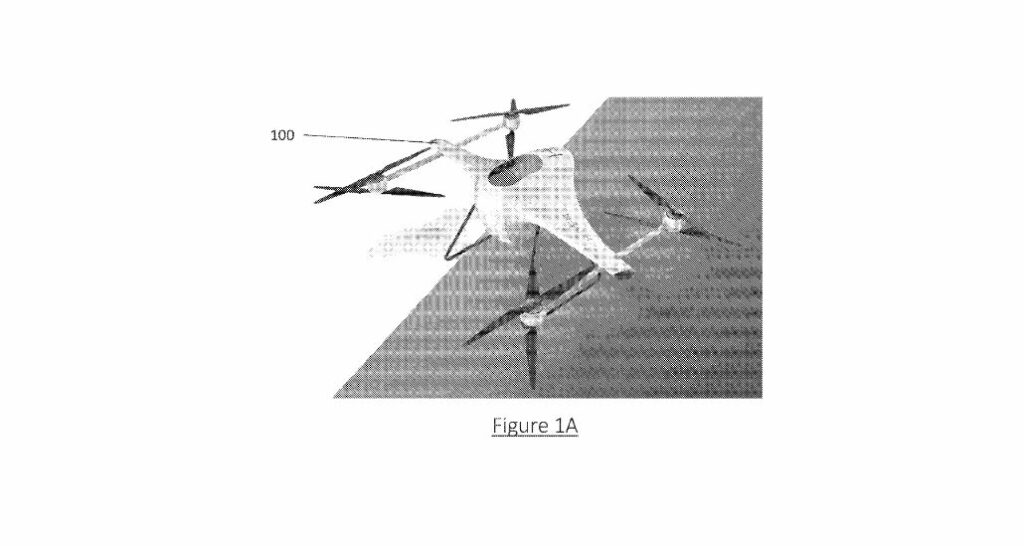HevenDrones Ltd. has recently filed a patent for an advanced autonomous airborne vehicle powered by hydrogen fuel cells. This novel invention introduces significant enhancements to drone technologies, promising applications that could efficiently transform multiple industries.
The new drone concept revolves around several unique features that set it apart from prevailing drone technologies. The vehicle boasts a central body portion with a flying wing shape, which is aesthetically appealing and improves aerodynamics and energy efficiency. It is equipped with first and second wings extending laterally from the central body. On the underside of these wings are longitudinal booms housing hover propellers, designed to provide vertical thrust, critical for stable hover and vertical takeoff and landing operations.
A hydrogen fuel cell, linked to a pressurized hydrogen cylinder, is at the core of its propulsion system. This fuel cell converts hydrogen and oxygen into electricity, fed to the vehicle’s hover propellers and a rear-mounted pusher propeller. The pusher propeller, positioned at the aft end, generates thrust along the roll axis, offering enhanced maneuverability and sustained forward motion.
One of the primary improvements this invention offers is hydrogen fuel cells. Unlike traditional lithium-ion battery-powered drones, hydrogen fuel cells provide higher energy density, longer flight durations, quicker refueling times, and are environmentally friendly. The critical advantage here is the marked increase in operational time and reliability—key factors for industries requiring persistent aerial surveillance, long-haul deliveries, or extended operational ranges.
The potential applications of this hydrogen-powered drone span across various sectors. Industries focused on logistics could leverage these drones for long-distance parcel delivery, which is crucial for remote or hard-to-reach areas. In agriculture, they could offer persistent crop monitoring and data collection. The technology could also be used in emergency services, providing rapid-deployment supplies or real-time disaster assessment in inaccessible zones.
Compared to existing solutions, this hydrogen-powered drone offers clear advantages over battery-operated models, specifically regarding flight endurance and environmental impact. While conventional drones are limited by battery life and longer charge times, this new technology ensures prolonged operations with rapid refueling capabilities. Additionally, fuel cell systems generate minimal emissions, aligning with global sustainability objectives.
Technical specifications highlighted in the patent include the precise arrangement of propellers, the orientation of the hydrogen fuel cell system, and the structural design of the flying wing shape. These elements collectively contribute to the improved performance and efficiency of the vehicle.
HevenDrones Ltd.’s recent patent introduces a revolutionary hydrogen-powered autonomous airborne vehicle. By integrating advanced hydrogen fuel cell technology with innovative drone design, this invention enhances operational efficiency across multiple industries, drives market growth for hydrogen fuel systems, and offers an environmentally sustainable solution for aerial operations. As this technology advances from patent to practical implementation, its impact on the market and environmental strides will be closely watched.





